COVID-19 and loneliness
COVID-19 has raised the alarm for the loneliness crisis. Keep scrolling to read key resources focused on COVID-19 and loneliness.
Marziali et al. (2020)
Physical Distancing in COVID-19 May Exacerbate Experiences of Social Isolation among People Living with HIV
Commentary
Primary finding: This commentary discusses physical distancing and social isolation among people living with HIV in the context of COVID-19.
Brennan et al. (2020)
How Might Social Distancing Impact Gay, Bisexual, Queer, Trans and Two-Spirit Men in Canada?
Commentary
Primary finding: This commentary discusses physical distancing and social isolation among gay, bisexual, queer, trans, and two-spirit men in the context of COVID-19.
Kimet al. (2021)
Social Isolation and Psychological Distress During the COVID-19 Pandemic: A Cross-National Analysis
Cross-sectional study
Primary finding: This study showed Social isolation (distancing) significantly predicts poor mental health operationalized as coronavirus-induced distress (p < .01). At the aggregate level, average distress varies positively across countries with higher numbers of coronavirus-related deaths (p < .10) and more fragile state capacity (p < .05), while varying negatively across those with more stringent anticoronavirus policies (p < .05). Finally, they report several cross-level interactions between social isolation and the total number of deaths (p = .025), policy stringency (p = .065), state fragility (p = .061), and globalization index (p = .071). Authors conclude that a proper understanding of the impact of COVID-19 on the mental well-being of older adults should consider the moderating role of national context.
Hossain et al. (2020)
Mental health outcomes of quarantine and isolation for infection prevention: a systematic umbrella review of the global evidence
Literature Review
Primary finding: This umbrella review found severe mental health problems among individuals and populations who have undergone quarantine and isolation in different contexts. This evidence necessitates multipronged interventions including policy measures for strengthening mental health services globally and promoting psychosocial wellbeing among high-risk populations.
Smith et al. (2020)
How the COVID-19 pandemic is focusing attention on loneliness and social isolation
Literature Review
Primary finding: This review examined the social and psychological consequences of the COVID-19 pandemic, with a focus on what this has revealed about the need to better understand and respond to social isolation and loneliness as public health priorities.
Chu et al. (2020)
Social consequences of mass quarantine during epidemics: a systematic review with implications for the COVID-19 response
Literature Review
Primary finding: Diverse psychological and social consequences of mass quarantine in previous and current epidemics were evident, but individual country policies had been highly varied in how well they addressed the needs of affected individuals, especially those who are socially marginalized.
Townsend et al. (2020)
Emerging infectious disease and the challenges of social distancing in human and non-human animals
Literature Review
Primary finding: This review considers constraints on altering social behaviour in the face of emerging diseases, including the lack of behavioural plasticity, environmental limitations and conflicting pressures from the many benefits of group living. It also explore the ways that social animals can minimize the costs of disease-induced changes to sociality and the unique advantages that humans may have in maintaining the benefits of sociality despite social distancing.
D’Acquiso et al. (2020)
Cardiovascular and immunological implications of social distancing in the context of COVID-19
Editorial
Primary finding: It is clear that social distancing measures such as lockdown during the COVID-19 pandemic will have subsequent effects on the body including the immune and cardiovascular systems, the extent of which will be dependent on the duration of such measures.
Manca et al. (2020)
The Impact of COVID-19 Infection and Enforced Prolonged Social Isolation on Neuropsychiatric Symptoms in Older Adults With and Without Dementia: A Review
Literature Review
Primary finding: The available evidence suggests that the COVID-19 pandemic has a wide negative impact on the mental well-being of older adults with and without dementia.
Clemente-Suarez et al. (2020)
Social and Psychophysiological Consequences of the COVID-19 Pandemic: An Extensive Literature Review
Literature Review
Primary finding: The present extensive literature review assesses the social, psychological, and physiological consequences of COVID-19, reviewing the impact of quarantine measures, isolation, vast human loss, social and financial consequences in the family's economies, and its impact on the psychological health of the population.
Loades et al. (2020)
Rapid Systematic Review: The Impact of Social Isolation and Loneliness on the Mental Health of Children and Adolescents in the Context of COVID-19
Literature Review
Primary finding: From 83 articles, the authors conclude that children and adolescents are probably more likely to experience high rates of depression and most likely anxiety during and after enforced isolation ends. This may increase as enforced isolation continues. Clinical services should offer preventive support and early intervention where possible and be prepared for an increase in mental health problems.
Sepulveda-Loyola et al. (2020)
Impact of Social Isolation Due to COVID-19 on Health in Older People: Mental and Physical Effects and Recommendations
Literature Review
Primary finding: Mental and physical health in older people are negatively affected during the social distancing for COVID-19. A total of 31 articles included recommendations and 10 addressed the impact of social distancing on mental or physical health. The main outcomes reported were anxiety, depression, poor sleep quality and physical inactivity during the isolation period. Cognitive strategies and increasing physical activity levels using apps, online videos, telehealth, are the main international recommendations.
Gorenko et al. (2021)
Social Isolation and Psychological Distress Among Older Adults Related to COVID-19: A Narrative Review of Remotely-Delivered Interventions and Recommendations
Literature Review
Primary finding: This narrative review draws upon a wide range of evidence to provide a comprehensive overview of appropriate remotely-delivered interventions for older adults that target loneliness and psychological symptoms. These include interventions delivered by a range of individuals (i.e., community members to mental health professionals), and interventions that vary by implementation (e.g., self-guided therapy, remotely-delivered interventions via telephone or video call). Recommendations to overcome barriers to implementation and delivery are provided, with consideration given to the different living situations.
